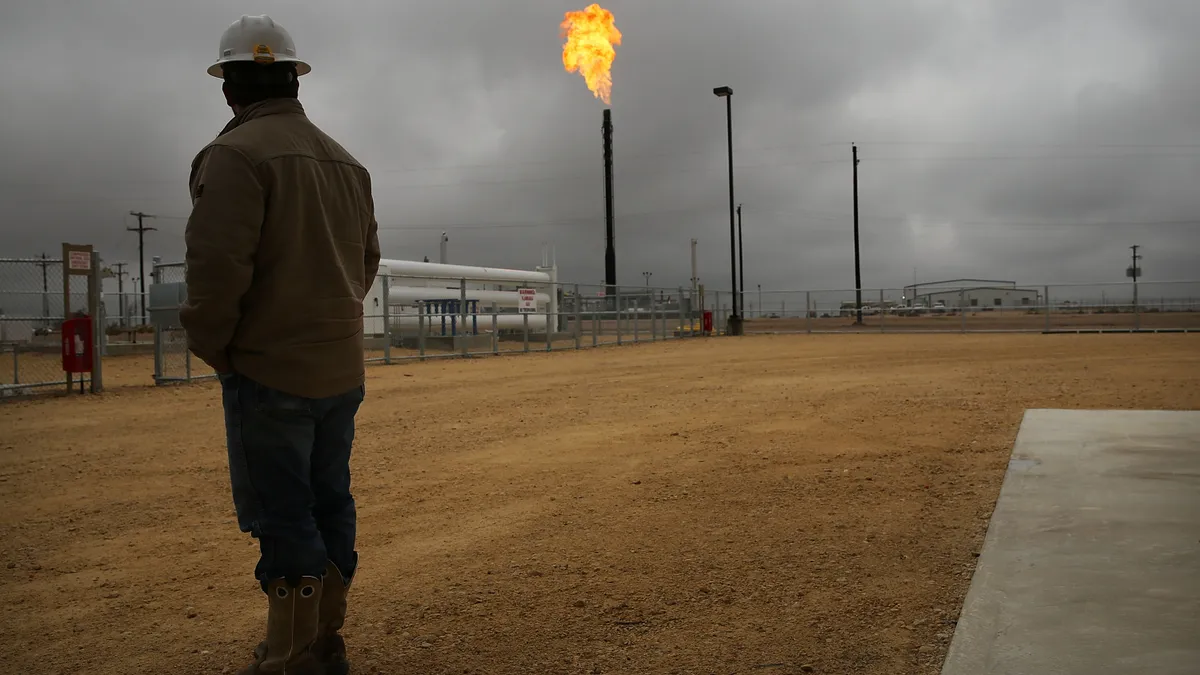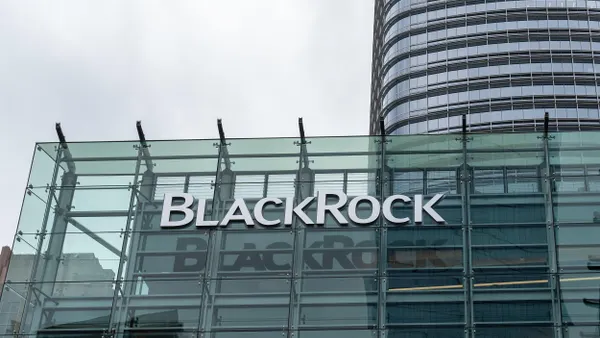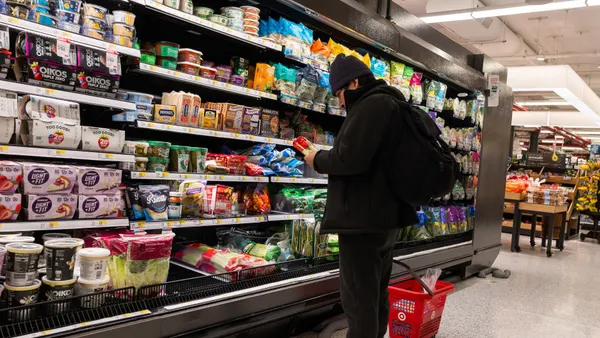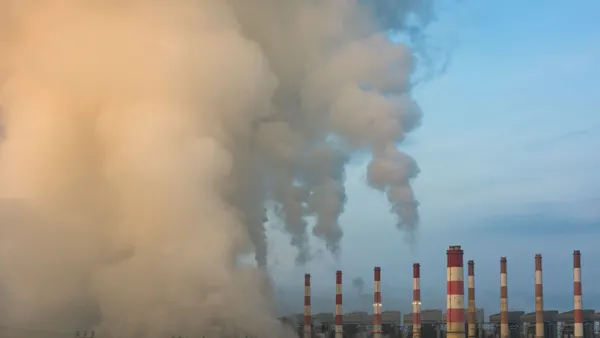Dive Brief:
- More than 25 consumer brands are linked to oil and gas fracking in the Permian Basin due to their sourcing of fossil-fuel derived plastic packaging, according to a new investigation by the climate group Stand.earth and the Center for International Environmental Law.
- The brands include 26 household names such as Coca-Cola, Johnson & Johnson, and Walmart. Many of these brands or their parent companies, including P & G, PepsiCo, L’Oréal, the Coca-Cola Company, Unilever, and Nestlé, had previously pledged to reduce their use of virgin plastic in favor of more sustainable alternatives.
- Stand.earth also used the findings to build a “Fracked Plastics Map”— an interactive tool linking consumer brands to packing companies, plastics producers and fracking companies that extract petroleum from the Permian Basin. The map reveals that just three companies — Dow, Ineos and Reliance — supply the plastic to the 26 brands for their packaging.
Dive Insight:
It was estimated that more than 500 million metric tons of plastic would be consumed last year, with most of this quickly becoming waste, according to the United Nations International Governing Committee on Plastic Pollution.
The Committee estimated that nearly all (98%) of single-use plastic products are produced from fossil fuel rather than recycled plastic. By 2040, greenhouse gas emissions associated with such products will make up 19% of the global carbon emissions budget, or the amount of carbon emissions that will keep the planet from warming more than 1.5 degrees Celsius, according to the Committee.
Stand.earth’s investigation used customs data, export/import data, company 10-K filings, supplier disclosure documents and investor presentations to trace supply chains for such single-use plastic packaging, per the April 1 press release. The report focused exclusively on packaging made of polyethylene and polyethylene terephthalate, which in turn was derived from ethane extracted in the Permian Basin, Stand.earth said in an email to ESG Dive. The investigation was not able to quantify volumes of single-use plastics bought by each company because this is proprietary information, Stand.earth said in the email.
However, of the companies investigated, the Coca-Cola Company had the most supply-chain connections to petrochemical companies, with 10 links identified. Other companies with a high number of links were Unilever, Nestlé and PepsiCo, Stand.earth told ESG Dive. These are the same four companies that generate the most plastic pollution worldwide, according to a 2023 audit by the global coalition Break Free From Plastic.
The investigation highlights the role of plastics in the global climate crisis, Stand.earth Investigative Researcher Devyani Singh said in the press release.
“While much of the climate conversation focuses on transportation and energy, petrochemicals are quietly becoming the biggest driver of fossil fuel demand,” Singh said. “This research pulls back the curtain on the hidden supply chains behind plastic production, exposing the corporations fueling both the plastic and climate crises.”
The investigation “underscores the urgent need for a Global Plastics Treaty to cut plastic production” and hold polluters accountable, Stand.earth said in the release. Negotiations at the United Nations to develop an international treaty on plastics pollution are behind schedule, with a fifth meeting to take place in Switzerland in August 2025.











